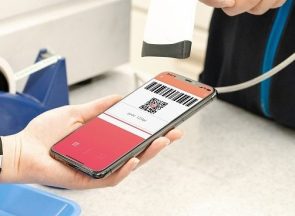Three months after moving into a new home with Habitat's housing support, we visited elderly Ms. Tanaka (pseudonym) to check in.
Habitat Japan’s domestic housing initiative, Project HomeWorks, is divided into two separate divisions that either help with cleaning/decluttering existing homes or connecting those in need with new housing. Through these two initiatives, Habitat Japan works to provide safe and secure housing for all. For cleaning support, Habitat is approached by public caregivers who watch over and connect their stakeholders with the services they need. To maintain a positive environment after Habitat has helped, Home Partners may utilize what services are available to them. Oftentimes, this aftercare is left up to the public caregivers who initially requested Habitat’s help.
On the other hand, home finding support is requested by those in need themselves or the shelter organizations they belong to. However, there are many people, often new to an area, that don’t have any roots or support networks to help them out. In these cases, a more personalized approach is needed. That’s where Habitat steps in to watch over and check in on home partners after they move into new housing.
The other day we revisited one of these home partners, Ms. Tanaka. Like many, Ms. Tanaka moved from another area in search of a place to live. Right now, she lives on welfare. When Ms. Tanaka moved, she was assigned a new public caseworker for the district she moved into, but this new caseworker had been too busy to meet for three months.
When we went to visit there were still some boxes left over from moving but overall Ms. Tanaka’s home was clean and tidy. The talkative Ms. Tanaka told us about her lifestyle in the neighborhood. She complained about her kitchen not having a counter, and how her first-floor room sometimes got cold. But she also told us she was making it out to the hospital as necessary, and often went to her local library to check out books. Aside from some minor inconveniences, Ms. Tanaka is leading a healthy and secure lifestyle. She does however have one bigger problem, and that is money management.
During Habitat’s last visit, Ms. Tanaka was accompanied to the cell phone store where a staff member helped her change her plan to a cheaper one since she did not use her smartphone that much. There we learned that when Ms. Tanaka first signed her phone contract, she was signed on for a cashless payment service, which our staff advised her to refrain from using in the future. However the next time our staff made a visit Ms. Tanaka told us that she couldn’t live without this cashless payment service, but also that she thought the bills she was receiving from it were more than what she was using.
Our staff asked to see her payment records so they could better understand, but Ms. Tanaka had trouble navigating the payment app on her smartphone. “Ah! The app screen changed and I can’t figure it out. I can’t find it, I don’t understand!” she exclaimed. When our staff tried navigating the app themselves, they were able to find her bill. The upcoming charge amounted to almost half of Ms. Tanaka’s next welfare payment!
 After confirming that Ms. Tanaka had indeed been using this cashless payment app, our staff took the opportunity to explain the dangers of overspending with credit cards and cashless payments. “But I can’t make ends meet without them,” replied Ms. Tanaka. Venting her woes, she continued: “anything and everything has jumped in price, and the welfare payments I’m getting haven’t. How am I supposed to pay more with the same amount of money?”.
After confirming that Ms. Tanaka had indeed been using this cashless payment app, our staff took the opportunity to explain the dangers of overspending with credit cards and cashless payments. “But I can’t make ends meet without them,” replied Ms. Tanaka. Venting her woes, she continued: “anything and everything has jumped in price, and the welfare payments I’m getting haven’t. How am I supposed to pay more with the same amount of money?”.
At the current rate, without a temporary influx of cash Ms. Tanaka wouldn’t be able to break this chain of borrowing and spending. The only way out was to reduce her use of cashless payments. Luckily, in response to recent jumps in price, we learned that Ms. Tanaka would receive a stimulus payment. If Ms. Tanaka used that money to pay off her outstanding bill from the cashless app, she could begin to live sustainably again.
Living off welfare is hard for Ms. Tanaka, but life would become even harder for her if she accumulated debts and potentially lost her home. Having communicated this with her, we assured her that “should you run out of cash and buying everyday items like food become difficult, please start by reaching out to us at Habitat so we can connect you with the support you need". Habitat continues to keep an eye on Ms. Tanaka’s situation so she can continue living a stable and independent life in his new home.
Project HomeWorks is able to support and watch over people like Ms. Tanaka with the help of our sponsors and contributors. For more information on how you can contribute, please check here.
